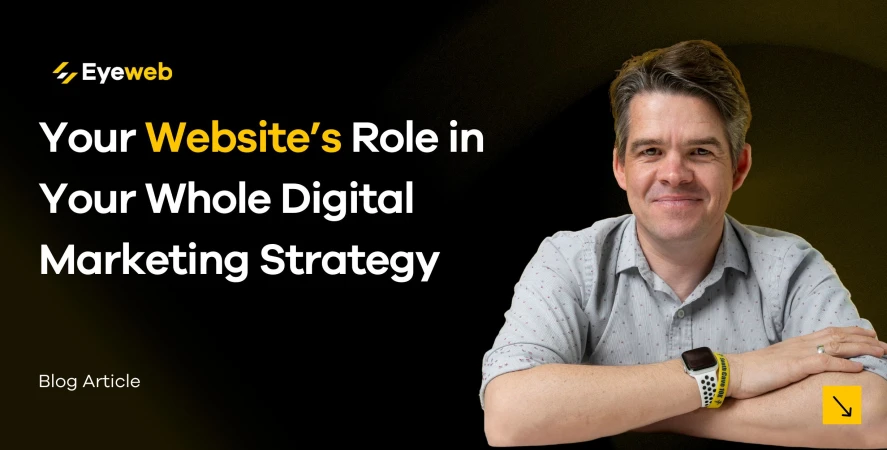Businesses often know that they need a new website, but they don’t always know why. It’s often the case that businesses see websites as a necessity but miss the impact they have on the whole sales & marketing process. We are a website development agency that goes deeper than that; we help businesses with their whole digital marketing strategy.
It’s a common misconception that just having a website is enough, but there is more to it than that. A great website should be part of your full marketing strategy and needs regular love and attention. Building a new website but neglecting the other elements that support your marketing function is a massive, missed opportunity.
It is important to really consider what you want customers to get from your website and understand how that fits with your company goals.
What’s a Website Good For?
Your customers now expect you to have an online presence. Without a website, you’ll be losing potential business to your competitors who are shouting about their services online. A website supports your business in a multitude of ways.
Sets the tone for your brand
Demonstrates knowledge and expertise
Showcases your products and services
Coveys trust and reliability
Introduces your team and creates personality
Your website is a potential client’s first impression of your business. It is also a place to engage with existing clients, updating them on new products and services. Your website, therefore, is an addition to any other marketing activity your business undertakes.
Where Does Your Website Fit in the Grand Scheme of Things?
Don’t fall into the pitfall of leaving your website to fend for itself. Your website is just one part of your marketing activities. Make sure you think about the whole process to get the maximum return on investment from your website project.
1. Marketing
Effective marketing assets will help your customers move from an awareness state through to converting them into paying clients. Your business can maximise “owned” assets like your social media channels to keep your clients updated and spread your reach to new audiences.
2. Website
A great website will educate your potential and existing clients. Not all websites are the same; you may be promoting services with a “brochure” site or selling products via eCommerce. Excellent website design will help convert interest into leads.
3. CRM/Sales Tools
There is a host of tools available to help manage your sales process. CRM tools like Hubspot are essential for managing your sales leads and organising your contacts. Canva is a brilliant way of creating eye-catching presentations to persuade clients to move towards agreeing on a sale.
4. After-Sales Care
Work doesn’t stop when you have acquired a sale. After-sales care is essential for building repeat business. Repeat business increases your return on investment as you have already spent the money on converting that customer.
After-sales care doesn’t just encourage recurring customers, those customers are likely to bring invaluable referrals. A single sale can soon become five, and so on. Then think about regular contact with your existing clients and add value to your products and services with initiatives like email marketing.


